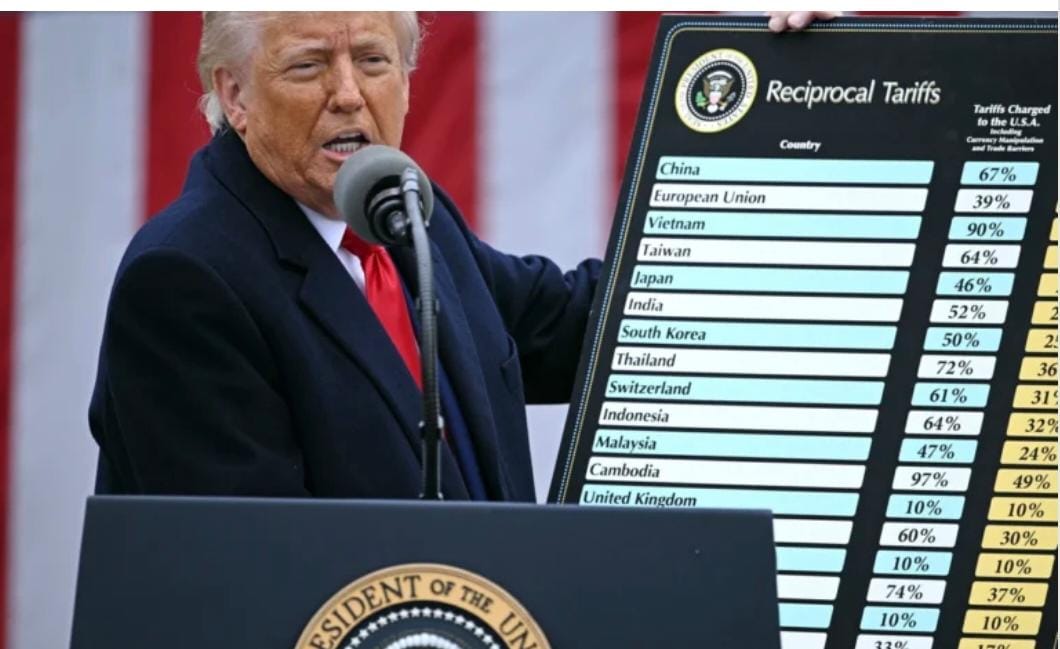In a bold move to reshape global trade, U.S. President Donald Trump announced sweeping new tariffs on Wednesday, imposing a 10% tax on imports from al
In a bold move to reshape global trade, U.S. President Donald Trump announced sweeping new tariffs on Wednesday, imposing a 10% tax on imports from all countries, including Ghana.
This decision marks a significant shift in Trump’s economic strategy, targeting trade surpluses and threatening to dismantle international trade agreements.
The tariffs, which Donald Trump claims will help boost domestic manufacturing and address trade imbalances, have sparked widespread concern among trade partners and experts.
Critics warn that the tax hikes could lead to higher prices for everyday Americans and spark a global economic downturn.
Despite these warnings, Donald Trump remains resolute, citing a national economic emergency and criticizing global trade systems for allegedly “looting” the U.S. for decades.
Trump’s “Liberation Day” tariffs, set to take effect on April 5, will impose a minimum baseline tariff of 10% on all countries, excluding Canada and Mexico.
Higher rates will be imposed on nations deemed by Trump to be the “worst” trade offenders.
The tariffs have been met with resistance from Republican senators and market experts, who fear that the move could trigger retaliatory measures from other countries and spark a global trade war.
The impact of Trump’s tariffs is already being felt, with markets struggling since February when the plan was first announced.
Futures for the tech-heavy Nasdaq dropped more than 2.3%, and the S&P 500 slid over 1.5% following the announcement.
Experts warn that the new tariffs could lead to a recession, as trade partners face rising costs and the global economy becomes increasingly uncertain
In a press conference, Donald Trump framed his new economic strategy as a way to “help build our economy” by spurring domestic manufacturing, increasing government revenue, and addressing what he called “cheating” in trade.
However, critics argue that the tariffs will ultimately harm American consumers and businesses, rather than promoting economic growth.

COMMENTS